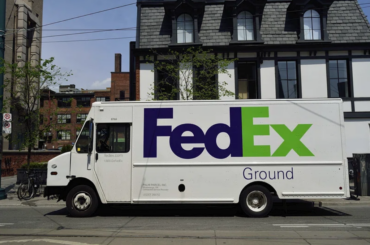
Are you familiar with the term TONU in trucking services? TONU occurs for different reasons and is a standard part of the trucking business. TONU stands for “Truck Order, Not Used.”
This acronym indicates that a customer has placed an order for trucking services, but the driver did not accept or complete the job. This could happen for several reasons, such as bad weather, roadblocks, or other entry problems.
Understanding the concept of TONU is crucial for logistics professionals, as it can significantly affect their business’s profitability. By studying TONU and implementing strategies to reduce it, companies can optimize their resources with better planning and increase their revenue by efficiently using available resources.
What is TONU in Trucking?

You may need clarification on these terms if you’re unfamiliar with the abbreviations used in trucking logistics. TONU meaning in trucking represents “Truck Order, Not Used,” a commonly-used phrase in the industry that reflects how trucking companies handle missed shipments or changes in delivery schedules.
If a truck is dispatched to pick up a load and cannot deliver, the shipper will be charged a TONU fee to cover the trucking company’s time and fuel expenses.
In real-world terms, imagine a scenario where you need to move your items across the country but change your plans last minute and cancel the truck that was arranged for you. In this case, the trucking company would charge you a TONU fee to cover the driver’s time and fuel costs, which would cost the customer a not-so-small amount.
Shippers and truckers need to understand how TONU works and how it can impact the logistics of their operations.
TONU Charges

TONU fees are often far lower than the full price of the services they cover. If not managed properly, this could greatly affect your profits as a trucking business. TONU charges are usually within four hours of the scheduled pick-up or drop-off time being canceled.
As experts in the trucking industry, we understand the importance of understanding TONU charges and their implications. These charges can cause a significant financial impact on both carriers and shippers.
This is why it is crucial to have strong contractual agreements outlining guidelines and common practices related to TONU charges.
By doing so, both parties can avoid misunderstandings and delays resulting in TONU charges being issued. As an informed party, staying up-to-date on industry standards and best practices are essential to reduce the likelihood of TONU charges.
5 Common Reasons Why TONU Charges Occur?

Incorrect Address
When the shipping address given is wrong or not full, TONU fees are added.Things like missing apartment numbers, wrong ZIPzip codes, or misspelling street names can cause problems with delivery.
Unauthorized Receiver
TONU charges happen when the person who is supposed to get the package is unavailable or is not allowed to do so. The individual who delivered the package may decline to give it to another person due to safety concerns. If someone is not present or lacks the proper identification, they should not be given it.
Restricted Items
When you ship something that isn’t allowed or restricted, you must pay TONU fees. Goods that carriers can’t carry include those that are dangerous, go bad quickly, or are illegal.
Refusal to Pay
When the recipient doesn’t pay customs or shipping fees, TONU fees can be added. Refusing service can happen if taxes or bills aren’t paid, or if you want to avoid paying extra fees.
Disclaimer: Remember that various circumstances may have varying elements that could impact the result. Knowing these typical causes can assist in reducing TONU fees, but it’s recommended to speak with the carrier or shipping provider for precise directions and rules regarding your package.
How To Avoid TONU Charges?

If you rely on trucking companies to transport your goods, you understand the importance of efficiency and cost-effectiveness. Challenges frequently arises with Truck Order, Not Used (TONU) charges. Fortunately, TONU charges can be avoided entirely with the right approach and communication.
5 Strategies For Shippers To Prevent TONU Charges
1. Plan Ahead: Keep yourself informed on the current demand for trucks and plan ahead to book your shipment as early as possible.
2. Be Accurate: Provide accurate information, such as pick-up and delivery addresses, contact details, and other important information, to avoid misunderstandings that could result in TONU charges.
3. Communicate: Maintain a consistent line of communication with your trucking partner and provide updates on any changes in schedule or pick-up/delivery locations.
4. Check For Capacity: Pay attention to the truck’s capacity and ensure it is adequate for the load you need to be transported.
5. Understand Your Agreement: Read through your agreement carefully, and understand what can trigger TONU charges.
Shippers can minimize or avoid such fees by understanding the concept of TONU in trucking services.
4 Recommendations For Carriers To Minimize Tonu Charges
1. Invest In Technology: Automation and technology can help carriers better manage shipments to minimize TONU charges.
2. Create A Standard Operating Procedure: Establish clear guidelines for TONU situations and ensure drivers follow the process correctly.
3. Improve Communication: Ensure timely communication between drivers, dispatchers, and shippers to minimize any misunderstandings that can trigger TONU charges.
4. Negotiate Terms: Talk to shippers about their policies on TONU charges and try to negotiate acceptable terms for both parties.
Final Thoughts
TONU is a common phrase in the trucking business. It stands for “Truck Order, Not Used.” Understanding this idea is essential because it can lead to charges that shippers and haulers didn’t expect.
Paying attention to these fees to stick to your budget and keep everything in order is important. If you don’t take notes, fees and other charges can sneak up on you. Being alert can save you time and money.
FAQs
How Much is a TONU Fee?
The TONU (Truck Order, Not Used) fee can vary depending on the carrier and specific circumstances. It is best to check with the carrier or shipping provider for the exact fee amount associated with TONU charges.
What is Standard TONU?
Transportation has no “standard” TONU. It occurs when a shipment is delivered but not accepted or used, which may result in additional fees or issues. TONU fee periods vary by carrier and scenario.
What is a Clean Truck Fee?
A clean truck fee is an additional charge imposed on shipments that meet specific environmental standards. It is intended to incentivize using cleaner and more eco-friendly trucks to reduce emissions and promote sustainable transportation practices.
What Does TONU Mean in Transportation?
In transportation, TONU (Truck Order, Not Used) refers to a situation where a truck is assigned for a specific delivery but ends up not being utilized due to changes in plans, cancellation of the order, or other reasons, resulting in wasted resources and potential costs for the carrier and shipper.
What is an Example of a Truck Order Not Used?
A truck order that wasn’t used occurs when a corporation books a truck to move products but cancels the cargo due to demand, inventory, or other considerations. This can hinder shipping and incur penalties for truck space.
What is Truck Demurrage Charge?
Truck demurrage occurs when a truck exceeds the agreed-upon loading or unloading time at a port or terminal. It encourages quick loading/unloading and reduces congestion to improve transportation network flow.
What Are The Reasons For TONU?
Common causes of TONU are canceled or delayed shipments, changes in delivery schedules, incorrect address information, insufficient loading or unloading times, and the wrong equipment or truck being ordered.
How Can I Avoid TONU Charges?
Strategies for shippers to prevent TONU charges include planning and booking shipments early.
What Is An Example of a Truck Order Not Being Used?
An example of a truck order not being used is when a shipper has ordered a truck and has not arrived at the designated time due to unforeseen circumstances.
Who Pays Freight Charges?
Shippers pay freight expenses. However, the shipper and recipient may agree to split freight costs.





